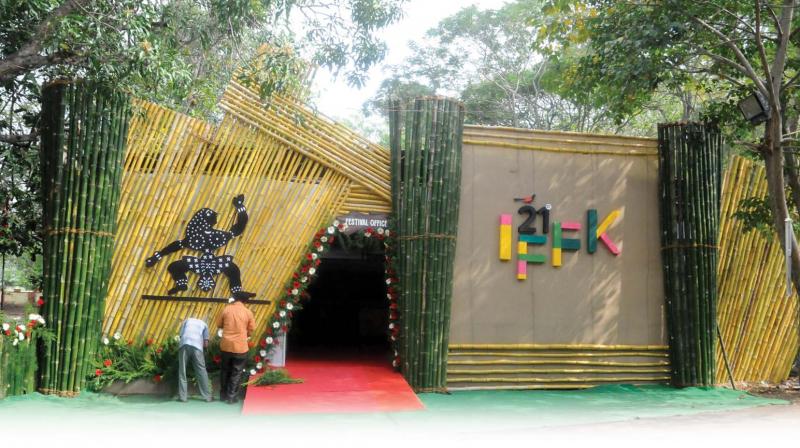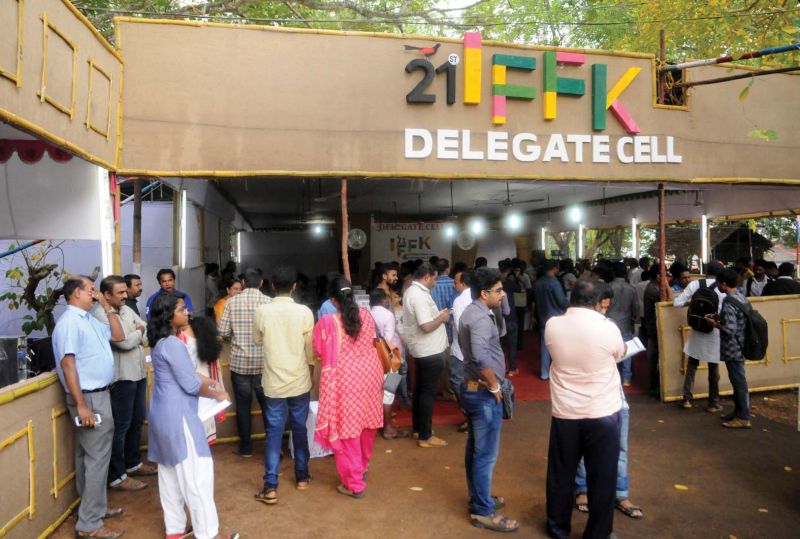It's a gender-neutral fest
Three woman filmmakers talks about how gender stereotyping demotivates women who aspire to be behind the camera.

Vidhu Vincent was in her apartment with friends when the call came. Her film Manhole — the film they all made together — had made it to the competition category of the 21st International Film Festival of Kerala. Moments later Vidhu was on television screens, and a day later on newspaper headlines, hailed for being the first woman filmmaker from Kerala to come in the competition category. And when the schedule for the IFFK was put out, there were three women filmmakers in the competition category — Vidhu and Santwana Bardoloi from India and Yesim Ustaoglu from Turkey. Quite a few others from around the world had also made it to the world and Indian cinema categories.
The IFFK begins today with its 185 films from 62 countries and it would be interesting to see if this trend is a reflection of what’s happening in world cinema. “Right from the beginning, I have been sort of campaigning the fact that this is a totally gender-neutral kind of place,” says Bina Paul, who, after a little break, is donning the hat of the festival artistic director. “We are as encouraging of men, as of women and other sexual identities. I think it comes as a result of how we do films that a lot of women directors have come in this year.”
“I am also very pleased that for the first time there is a woman from Kerala whose film has come in competition — Vidhu. She is my student too. While the whole story in Hollywood is that there are only four percent women behind the scenes, we show that in world cinema, there is a lot of female presence. In Indian cinema too, we have Vidhu and Santwana in the competition category. It is quite interesting because Santwana is actually a doctor and doesn’t make films full time. Overall, yes, I think it is a reflection — there are more women coming behind the camera. In Kerala too, slowly but surely it is happening.”
Vidhu, while happy to have achieved this rare status, is not sure if there really is progress in the number of women coming to work behind the camera. “What is stopping their entry? Is it patriarchy? Is it family? There could be a number of constraints. I have heard producers ask how far they can trust women filmmakers, how long will they stay. There is that stereotype of a woman that stops many from entering the field. Many times even when they do come, their films are put into women packages. Rarely do you find a presence in the general categories. It is good that there are female film festivals to encourage more women to make films. But while we celebrate one woman coming to the field, there might be a hundred more men coming.”
The other Indian filmmaker in the list — Santwana Bardoloi from Assam — has made her second film Midnight Keteki, 20 years after her Adajya that won the national award for the best regional film. “Not that I was away from films. I have been a regular film watcher attending festivals, a serious film lover. I had tried to motivate myself to make another film but it did not happen. Then, three or four years ago, I started, encouraged by my friends and especially my daughter,” Santwana says. Her first film was part of a novel written by Indira Goswami. The second, Midnight Keteki, is about a writer. “Most of us have secrets we wouldn’t like to talk about. But when a writer writes, it touches parts of your lives and parts of other people you have met. You need a lot of courage to write painful truths.” On told of the number of women directors at the IFFK this time, Santwana says she will be happy if it is a reflection of realities. But it could be just this year, she says. “It is a hard job, behind the camera.”
Ana Cristina Barragan from Ecuador whose film Alba is featured in the world cinema category at the festival, says: “There were many challenges, yes. Money is one of them, but also the access to knowledge. But I think it has been a good challenge.” She has directed three short films, all of them exploring pre-adolescence. “In Alba I wanted to take a step forward and talk about the entire stimulus we as women have at that age, to explore the mixture between tenderness and pain of little girls that grow up, and to talk about two very shy characters that didn’t fit in the ‘normal’ parameters of society.” She feels that there are great women filmmakers today, but it is still difficult to face a society that is not completely used to women directors. “But I think this is changing fast. In Ecuador, we have plenty of woman directors.”



